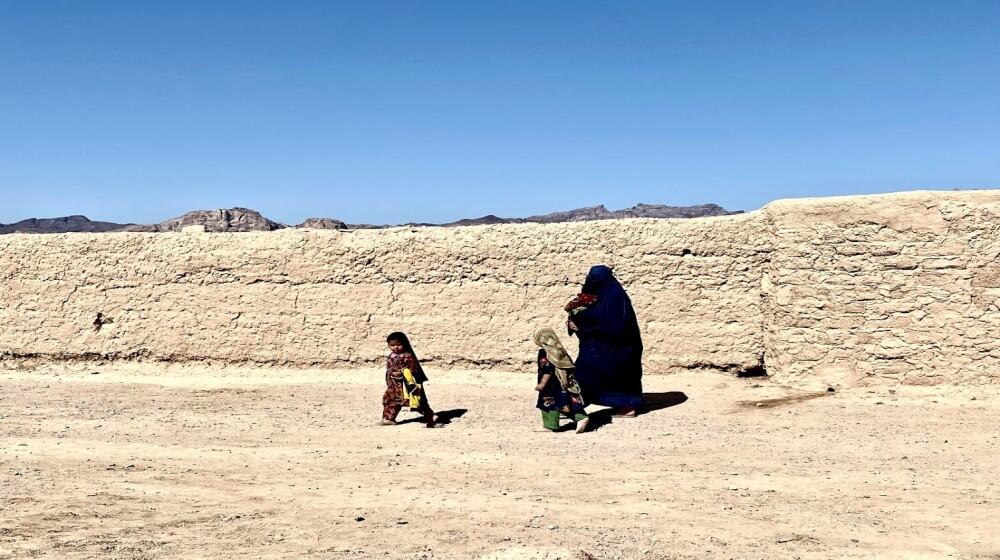UNFPA appeals for $250 million funding to sustain humanitarian response and reach more Afghans in need
Kandahar, Afghanistan - In the southern part of this province, internally displaced persons (IDPs) from Zhari district have to walk hours to reach health facilities. The situation has worsened since August 2021 when the Taliban took control of the country and development assistance halted, including a project that funded the operation of more than 2,000 public health facilities.
Afghanistan has one of the highest maternal death rates in the Asia and the Pacific region at 638 deaths per 100,000 live births, and the situation is expected to get worse without timely and appropriate interventions for maternal health.
Anisa (not real name), 19, was among the IDPs in Zhirai affected by the closure of the health facilities. She was pregnant and suffered a miscarriage because she lost access to maternal health care.
“I had a miscarriage and my two-year-old daughter also got sick, so we both needed medical care,” Anisa recalled. The loss of her baby and the uncertainty of the situation in the country also affected her psychologically.
“We did not know where to go until one day in September, an ambulance came to our community and we were told to come for free health services,” Anisa said. “I immediately ran to our house to take my two daughters so the three of us could get a check-up.”
The ambulance that visited Anisa’s community was one of the Mobile Health Teams (MHT) that UNFPA mobilized in various locations in Afghanistan to bring reproductive and other basic health services to remote areas affected by the severe disruption of health services across the country.
The deployment of MHTs, along with other interventions such as the Family Health Houses, emergency clinics at the borders with Pakistan and Iran, mobile and static facilities that provide psychosocial support and protection services, as well as toll-free hotlines for midwifery assistance and adolescent and youth reproductive health comprise UNFPA’s integrated reproductive health and protection response to the deepening crisis in Afghanistan.
In its 2022 Humanitarian Response Plan (HRP), UNFPA is seeking to raise $251.9 million to continue and expand the services. The response aims to address the reproductive health and protection needs of 9.3 million Afghans, including 2.2 million women of child-bearing age, 2.3 million adolescents, and 289,000 women expected to give birth during the year. UNFPA’s target reach covers 42 per cent of the overall UN target population for assistance under 2022 Afghanistan HRP, which requires $4.44 billion funding.
UNFPA Representative Dr. Aleksandar Sasha Bodiroza emphasized the serious impact of the unprecedented crisis among women and girls who suffer the most. Dr. Bodiroza cited the fact that every two hours, an Afghan woman dies from preventable childbirth and pregnancy complications, which could only get worse without timely action. Various reports since August 2021 also indicate increasing prevalence of gender-based violence.
From August to December 2021, UNFPA reached over a quarter million people with reproductive health and protection services through various service delivery points. Anisa and her two young daughters are among those who benefited from the assistance.
“The Mobile Health Team is good. I was examined by a midwife who advised me to delay another pregnancy as I just had a miscarriage. She explained how I can plan for pregnancy and I decided to go for it so that my husband and I can also plan for the future of our family,” Anisa said. She also received psychosocial counseling as she talked about the trauma of losing her baby.
Anisa happily shared that since September, the MHT has been visiting her community at least twice a month and they are setting up the mobile clinic just next to her house. The availability of free health services helped the young mother gain some optimism despite the difficult situation.
“I grew up not knowing where I was born, my family kept moving from one place to another. Now I am married and have kids. I dream to see my family live in peace.”


